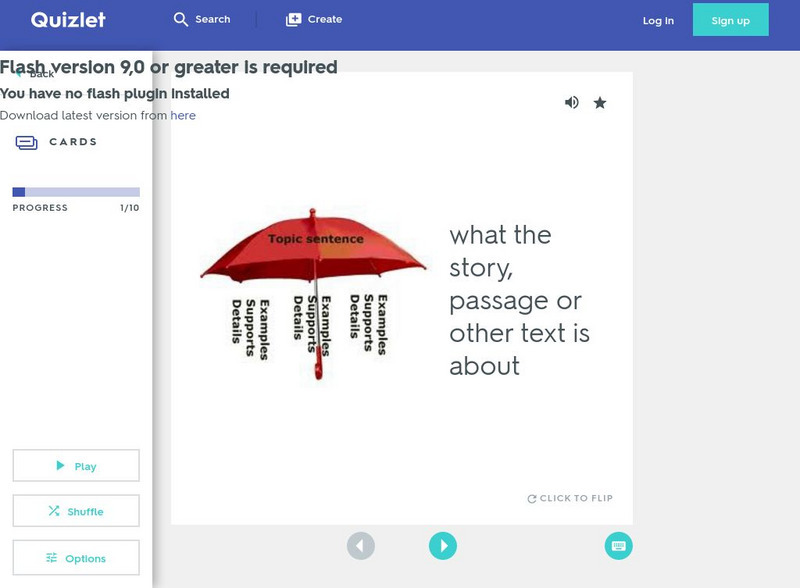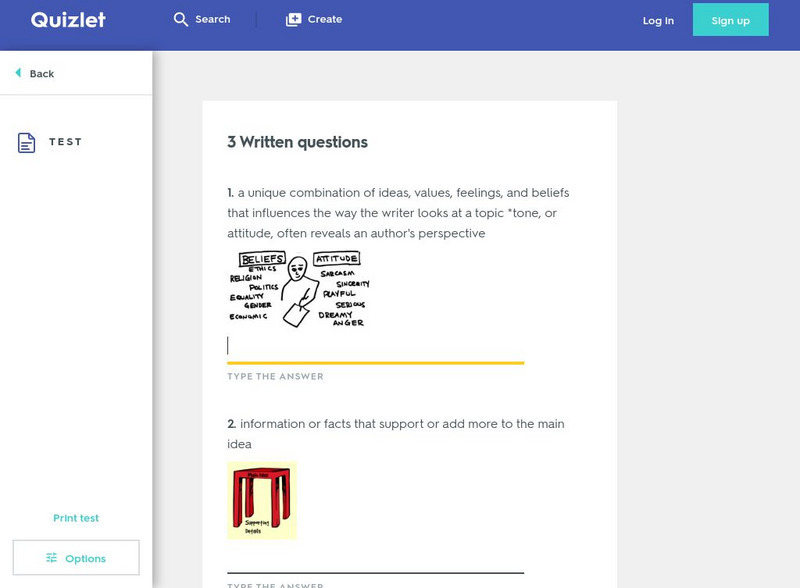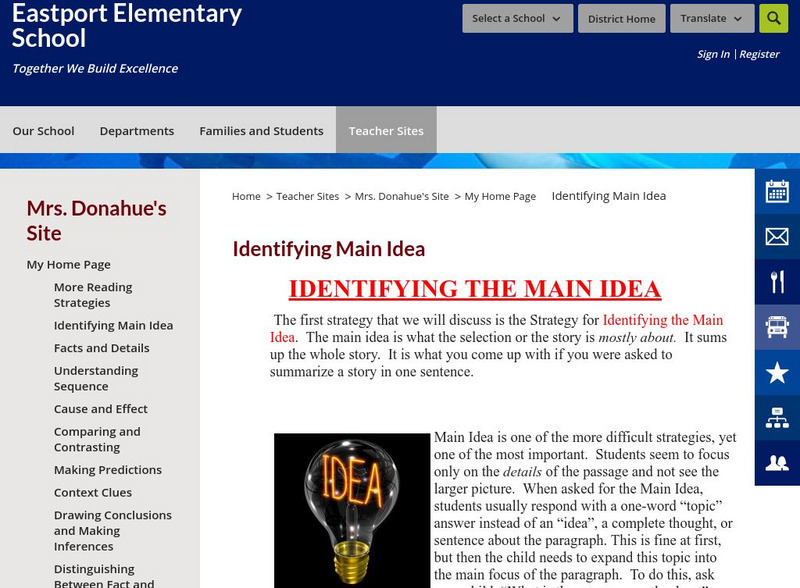Curated OER
Author, Author!
Third graders, in groups, select and research a favorite studenT author or illustrator. They answer questions about the author, conduct research and prepare a PowerPoint presentation with their findings.
Curated OER
From Seeds to Plants
Second graders review the process of plant reproduction and the role of seeds in that process. The students dissect a seed, analyze their finds, collect and record data, and make predictions about seed germination and plant growth.
Curated OER
Story Pyramid And Comparison
Students investigate the details of a chosen story of literature. They use a pyramid graphic organizer to record information. The information is used to write a summary of the story. Students use a rubric while writing the summary to...
Curated OER
Novel News
Young scholars, working in groups create a newspaper based on the events that take place in a novel. Groups complete sections of the newsletter based on criteria and publish it using newsletter publishing software.
Curated OER
Celebrations
Second graders answer questions after listening to the the story "Celebrating Life Around the World" and verbally identify three ways in which people celebrate special occasions. They then make two verbal connections from their own...
Curated OER
History and Geography: Making a New Nation
Fifth graders examine the contributions of the different groups that built the American Nation. They identify the successive waves of new immigration, explain their attraction to America, and study the importance of Ellis Island.
Curated OER
Words to Warm the Winter: Characters Count!
Fifth graders take part in a mini-lesson on characterization, discuss roles for Literary Circles and meet for the first true session of their Literary Circles.
Curated OER
The Time I Got Lost
Third graders go through the writing process but substitute paper and pencil with the computer to create a story about "The Time I Got Lost".
Curated OER
Make Way for Ducklings
First graders use skills to collect, organize, and interpret data. They compare and contrast two stories, Make Way for Ducklings and Chibi: A True Story From Japan. Students create a duckling.
Curated OER
Words to Warm the Winter: Keeping Things Organized
Fifth graders are in Literary Circles according to the book they've chosen and choose roles.
Curated OER
One Thing Leads to Another
Second graders rediscover cause and effect situations using the story The Rainbow Fish by Marcus Pfister. They gain an understanding of how one thing leads to another.
Read Works
Read Works: Using Headings to Determine the Main Idea: The Shark: Silent Hunter
[Free Registration/Login Required] Reading comprehension strategies are the focus of this ReadWorks lesson. Students will pay attention to headings, subheadings, and other text features to help them comprehend nonfiction text. Renee Le's...
Read Works
Read Works: Main Idea 1st Grade Unit
[Free Registration/Login Required] Students learn to use titles and supporting details in both fiction and non-fiction texts in order to identify the main idea of the book in this three-lesson unit. The lessons utilize the books Animal...
Other
Academic Reading: Sample Task [Pdf]
This Academic Reading task provides a practice assessment for identifying headings and subheadings. In the task, students must read the selection and then determine the best subheading for each of the sections.
ReadWriteThink
Read Write Think: Nonfiction Pyramid
A printable pyramid for use with nonfiction texts while students identify the main ideas and supporting details within a text. Students also determine author's purpose and key vocabulary words. Directions on how to use this type of...
Quizlet
Quizlet: Ccisd 4th Grade Main Idea Flashcards
Reading strategy terms (nonfiction) are included in this review exercise. Flashcards are provided for the following words: topic, main idea, supporting details, summarizing, conclusion, point of view, author's perspective, author's...
Quizlet
Quizlet: Ccisd 4th Grade Main Idea Test
Reading comprehension terms (nonfiction) are included on this test. This test assesses the following words: topic, main idea, supporting details, summarizing, conclusion, point of view, author's perspective, author's purpose, details,...
Quizlet
Quizlet: Ccisd 4th Grade Main Idea Match
Reading comprehension terms (nonfiction) are included in this review "Match" game. Questions are provided for the following words: main idea, summarizing, point of view, summarizing, topic, support, conclusion, details, author's purpose,...
Other
Eastport Elementary School: Mrs. Donahue's Site: Identifying the Main Idea
Information, examples, and practice passages to use while learning how to identify the main idea of an informational text.
Polk Brothers Foundation Center for Urban Education at DePaul University
De Paul University: Center for Urban Education: Comprehensive Assessment: Nonfiction [Pdf]
Questions are provided to help students determine the main idea, topic, purpose, and opinion of a piece of nonfiction. Students are prompted to write a summary of the informational text.
SMART Technologies
Smart: Main Idea & Details
This interactive lesson offers clarification and practice in the realm of main ideas and details.
Hopelink
Hopelink: Reading Lesson Idea: Qar a Reading Comprehension Strategy
Brush up on your reading comprehension skills when you check out this website. It looks at a particular strategy called QAR. QAR stands for "Question-Answer Relationships." This particular strategy helps students learn to answer reading...
Scholastic
Scholastic: Investigating Nonfiction Part 3: Independent and Guided Reading
This article provides tips for using nonfiction with guided reading and independent reading. The following strategies are shared: ways to help kids select "just right" nonfiction books; lessons to use with nonfiction in guided reading...
Quizlet
Quizlet: Stated Main Idea, Inferred, Implied, Main Idea Match
Nonfiction reading terms are included in this review "Match" game. Questions are provided for the following words: stated main idea, inferred, implied, and main idea. Images of each of these nonfiction reading terms are also included.




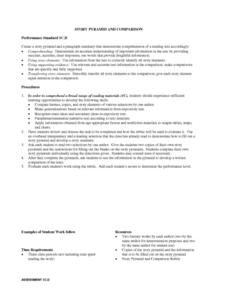
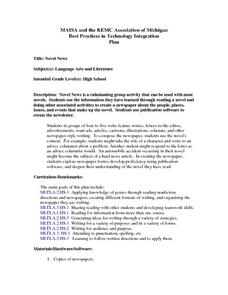


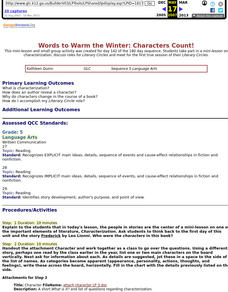


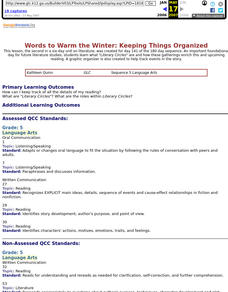
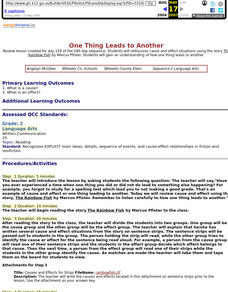
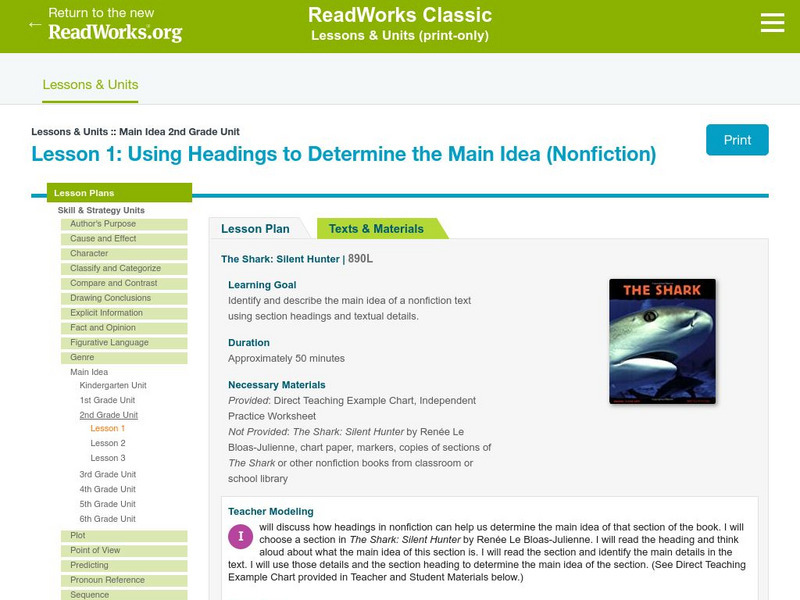

![Academic Reading: Sample Task [Pdf] Unknown Type Academic Reading: Sample Task [Pdf] Unknown Type](https://d15y2dacu3jp90.cloudfront.net/images/attachment_defaults/resource/large/FPO-knovation.png)

